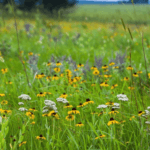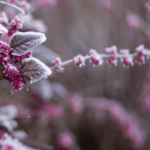
Beautiful flowers gardenia Plants For Your homes

Keeping a garden beautiful and alive is a big job. But, pests like slugs, insects, and squirrels can really mess things up. Luckily, there are many natural ways to control pests without using harsh chemicals.
For garden pest control, organic pesticides and beneficial insects are key. By knowing which pests are causing trouble and using eco-friendly methods, you can keep your garden healthy. This includes using companion planting, insect repellents, and natural remedies.
It’s also important to know about plant hardiness zones. This helps your garden grow well, even when the weather changes. By picking the right plants for your area and using strategies to make plants stronger, your garden can thrive. Cold-climate gardening tips and choosing the right plants can keep your garden looking great all year.
Gardeners often face pests that harm their plants and crops. These pests include insects and small wildlife. Knowing about these pests helps you use natural ways to protect your garden.
Insects and mites are common pests in gardens. Some pests include:
Small wildlife like rabbits, squirrels, and chipmunks also damage gardens. They eat plants, fruits, and vegetables.
It’s tempting to use synthetic pesticides. But these chemicals harm the environment and beneficial insects. Natural pest control methods are better for your garden and the environment.
Techniques like companion planting and using organic pest control products help. They keep pest populations in check. This approach also supports biodiversity and garden health.
It is important to strike a balance that reduces pest damage while conserving your garden’s biodiversity.
Understanding pests and natural control is key. It helps protect your plants and makes your garden thrive. You’ll enjoy a beautiful space and plenty of harvests.
To protect your garden from pests, it’s key to know which insects are harming your plants. Spotting pest signs and using the right tools for monitoring helps. This way, you can act fast and use natural solutions like pesticides or repellents.
Look for holes in leaves to spot pests. Small round holes in spring might be flea beetles. Larger holes could be from beetles, earwigs, slugs, snails, or grasshoppers.
Big holes with poop are usually worms. Twisted leaves on tomatoes might be aphids or mites. Skeletonized leaves are often from beetles or grasshoppers. Defoliated leaves are usually from worms, grasshoppers, or beetles.
Watch for sticky honeydew from aphids or the pests themselves. Some pests like certain plants, like slugs on marigolds or Japanese beetles on roses. Check your plants often, especially the undersides of leaves, to catch pests early.
Good garden care, like shown in the article on growing Pachysandra, helps plants fight pests better.
Learn about common insects by using books or websites. Look at their color, size, and markings. Also, observe their behavior and how they reproduce.
Identifying pests might need more than one method. For example, small bleached-out leaves could be from beetles or leaf miners. Cutworms, earwigs, pill bugs, and mole crickets might cut plants off at the soil line. You’ll need to check these areas closely.
Learning about garden pests helps you make smart pest control choices. This keeps your garden healthy and beautiful.
By watching your garden, knowing pest signs, and using the right tools, you can manage pests well. This keeps your garden thriving and healthy.
Companion planting is a way to keep pests away from your garden. It involves placing plants together to help each other and keep pests off. This method helps you use fewer chemicals in your garden.
Some plants smell so strong they keep pests away. Marigolds, for example, keep aphids, beetles, and whiteflies off. Garlic and chives smell so bad that most insects won’t come near.
Mint plants like peppermint and spearmint also keep pests away. They smell so strong that flies, beetles, ants, and mealybugs won’t come near.
Herbs like basil, oregano, rosemary, and lavender also help. They keep mosquitoes, flies, aphids, tomato hornworms, and spider mites away. You can plant these herbs among your vegetables to keep pests off.
Companion planting is like having a personal bodyguard for your plants. It’s a natural way to protect them from harmful pests without resorting to harsh chemicals.
Some plants can even lure pests away from your main plants. Nasturtiums, for example, can be used as a trap crop. They come in different types, making them easy to fit into your garden.
Planting flowers that attract good bugs is also helpful. Zinnias, sweet alyssum, and plants like carrots and parsley attract ladybugs and lacewings. These bugs eat pests, helping you control them naturally.
Companion planting is part of a bigger plan to keep pests away. Check your plants often, remove any that are sick, and use row covers. These steps help keep your garden healthy and pest-free.
By using these methods, you’ll have a garden full of life and plenty of food. You’ll also know you’re working with nature, not against it.
Beneficial insects are key in natural pest control. They help keep your garden balanced. These tiny helpers fight off harmful pests, reducing the need for chemicals. Knowing about these insects and their roles helps your garden thrive with natural methods.
Many insects act as natural predators in gardens. Each has special skills to control pests:
To use biological control, you need to attract beneficial insects. Here’s how to encourage them:
By following these steps and welcoming beneficial insects, you can create a strong natural pest control system. This promotes a healthy, thriving garden ecosystem.
Protecting your garden from pests is easy with natural and organic products. These options are safe for the environment and gentle on your garden. Let’s look at some top natural pest control choices.
Neem oil comes from the neem tree and has been used for ages. It stops insects from eating and reproducing. It’s great against aphids, whiteflies, and spider mites.
To use it, mix neem oil with water and soap. Spray it on your plants. Roots and Refuge says neem oil is key for organic pest control.
Insecticidal soaps are another good choice. They’re made from fatty acids and kill soft-bodied insects. They work well against aphids, mealybugs, and whiteflies.
To use them, mix the soap with water as directed. Spray it on your plants, covering all surfaces.
There are more natural pest control options:
Choose products that are OMRI listed or USDA Organic certified. This ensures they meet organic standards. Monterey Bug Buster-O and Essentria IC Pro Insecticide are good choices.
Using natural and organic pest control helps manage pests without harming the environment or beneficial insects.
Protecting your garden from pests doesn’t mean you need chemical insecticides. Many natural insecticides can be made at home. These homemade remedies are good for the environment and gentle on your plants.
A soap spray is a simple and effective homemade insecticide. Mix 1 tablespoon of mild liquid soap with 1 cup of vegetable oil. Then, dilute 2-8 teaspoons of this mixture in 1 quart of water. This spray fights aphids, mites, thrips, and other soft-bodied insects.
Garlic spray is another powerful natural insecticide. To make it, puree 2 bulbs of garlic with 1 cup of water. Strain the mixture, then mix it with 1/2 cup of vegetable oil and 1 teaspoon of liquid soap. Add water and apply it to your plants.
Try a hot pepper spray for a spicy solution. Mix 1 tablespoon of dried chile powder with 1 quart of water and 1 teaspoon of mild soap. Or, puree 1/2 cup of chopped peppers in 1 cup of water, strain, and add 1 teaspoon of mild soap. Use this spray at full strength to keep pests away.
“Tomato leaf spray is another unique homemade insecticide. Soak 2 cups of fresh tomato leaves in 1 quart of water overnight, strain, and apply the solution to your plants. The alkaloids in tomato leaves, such as tomatine, can help control various insects.”
Traps and barriers can also protect your garden. Beer traps are great for controlling slugs and snails. Bury a shallow dish or container filled with beer at ground level. The fermented yeast will attract these pests, causing them to fall in and drown.
Copper tape is another barrier to deter pests. Wrap the tape around the base of your plants or containers. The copper will give the pests a mild electric shock when they try to cross it.
Crushed eggshells or coffee grounds can also deter pests. Sprinkle them around the base of your plants. The sharp edges of eggshells and the abrasive texture of coffee grounds will keep pests away.
Remember to reapply homemade insecticidal sprays every 4-7 days. This will help keep your garden healthy and thriving without harsh chemicals.
Keeping your garden clean and well-kept is key to natural pest control. By following good garden maintenance, you can lower pest risks and keep your plants healthy. Focus on garden hygiene, pruning, and soil care for a strong pest prevention plan.
Keeping your garden clean is vital. Remove weeds, fallen leaves, and debris to stop pests from hiding and breeding. Also, avoid overwatering to prevent damp conditions that attract pests like slugs and snails. Water deeply but let the soil dry out between waterings.
Pruning is crucial for controlling pests and diseases. Check your plants for signs of trouble like damaged leaves or unusual growth. Remove infected parts with clean, sharp tools. Dispose of them by burning or sealing in bags to stop pests and diseases from spreading.
Mulching helps suppress weeds, retains moisture, and improves soil health. Use organic mulch like straw or wood chips around your plants. It keeps soil moist and acts as a pest barrier. Crop rotation and plant diversity also help. They create a balanced ecosystem that fights pests naturally.
A well-maintained garden with healthy soil and diverse plants is key to pest control. Focus on cultural controls and soil health through good garden care. This way, you can naturally keep pests away and grow healthy, vibrant plants.
Using eco-friendly pest control methods makes your garden healthy and beautiful. Pesticide-free gardening protects your plants and supports a balanced ecosystem. It lets beneficial insects and natural pest deterrents help your garden grow.
Integrated pest management (IPM) combines effective and safe pest control methods. This approach helps manage pests without harming good bugs. Techniques like companion planting and attracting beneficial insects are important for eco-friendly gardening.
Using organic pest control products and keeping your garden clean are also key. These practices help lower pest numbers without harsh chemicals. In fact, gardening experts say IPM can cut pest populations by up to 50%.
A healthy garden starts with healthy soil. Organic compost and mulch improve soil health, which helps plants grow strong. This makes your garden more resistant to pests. By working with nature, you can have a safe and abundant garden for you, your family, and the environment.




